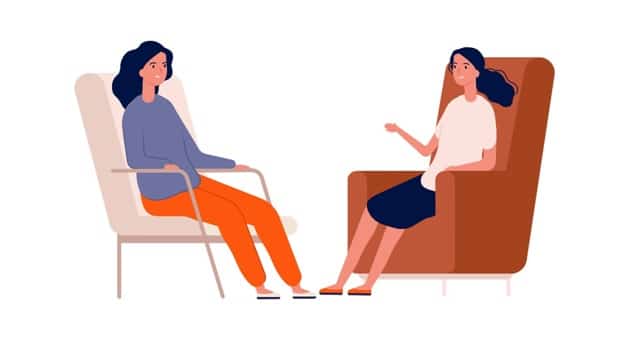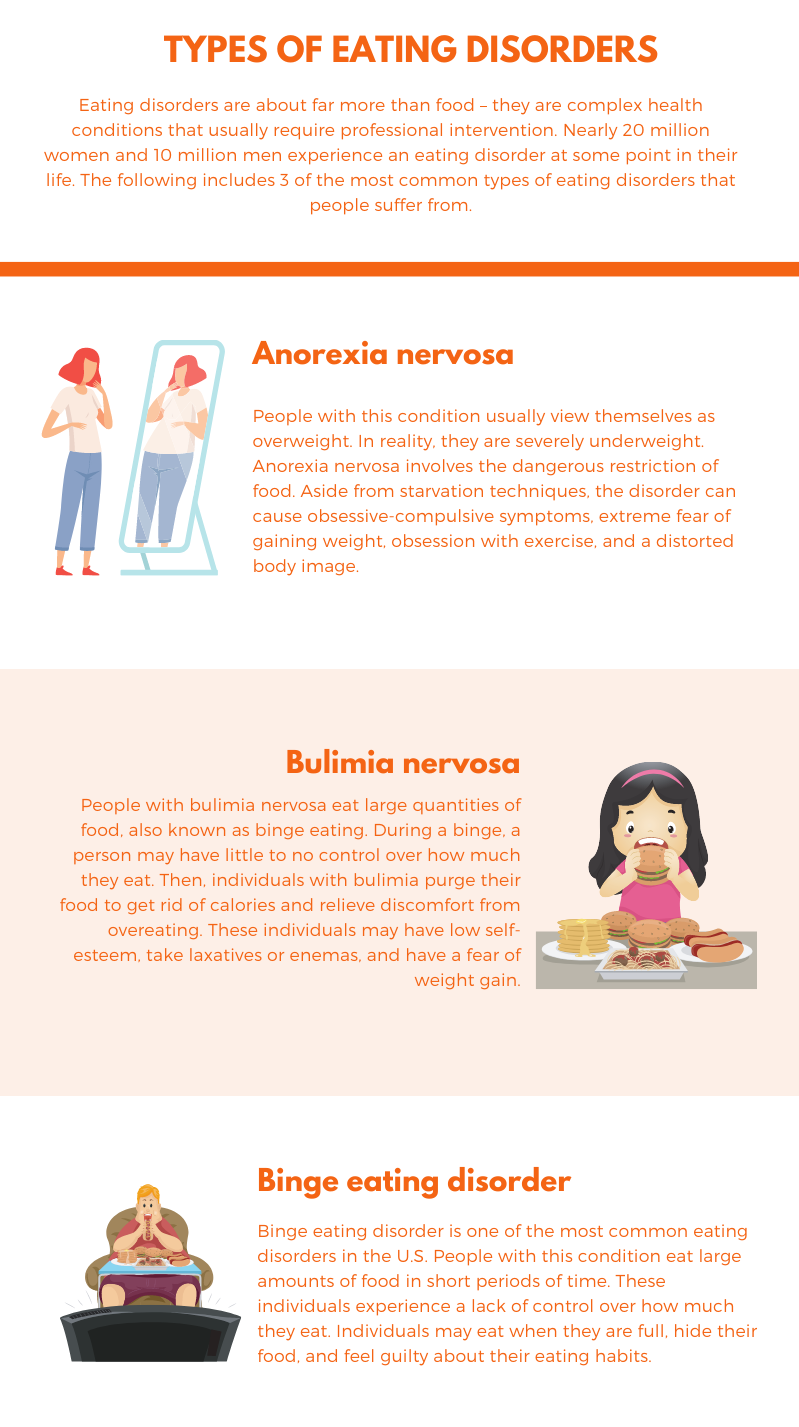Eating Disorder Recovery for Beginners
Wiki Article
Some Known Facts About Eating Disorder Recovery.
Table of ContentsSome Ideas on Eating Disorder Recovery You Need To Know4 Simple Techniques For Eating Disorder Recovery4 Simple Techniques For Eating Disorder RecoverySome Known Details About Eating Disorder Recovery What Does Eating Disorder Recovery Do?

While lots of people make a point to be mindful of the ingredients and also sourcing of their food, orthorexia can end up being damaging to the person's health and wellness. Eventually, specific foods or entire teams are gotten rid of from the individual's diet plan; they could additionally begin to stress over the ingredients in their foods, investing hrs each day planning dishes.
Food active ingredients could likewise come to be the individual's just topic of conversation. Orthorexia is additionally a common co-occurring condition linked with OCD.
The Main Principles Of Eating Disorder Recovery
With this condition, an individual will strictly avoid particular foods to the hinderance of their health - eating disorder recovery. Unlike orthorexia, nonetheless, the avoidance of specific foods isn't driven by concepts of the food's healthiness or purity, yet instead by a serious hostility to the food's taste, structure, or odor (although problems regarding wasting or gastrointestinal disorder may likewise be existing).Gradually, increasingly more foods become illogical, causing a very limited scheme of acceptable foods. Formerly known as discerning eating disorder, ARFID often begins in youth and also progressively gets worse over time. It's relatively usual for children to be "choosy eaters" as well as everyone has preferences for what they consume, but if it comes to be compulsive as well as destructive to a person's wellness, it requires a check-in with an eating problem treatment specialist.
Like orthorexia, an adverse or altered body image is not always a cause of the problem. ARFID is typically dealt with using talk therapy and also cognitive retraining such as Cognitive Behavioral Treatment (CBT). Unlike a lot of eating problems which normally first present throughout teenage years, rumination problem is most typical in early stage and early childhood, although it can persist right into adulthood.
Eating Disorder Recovery Fundamentals Explained
Normally, they do not experience stress and anxiety or disgust when spitting up, nor do they appear to make an effort to throw up (as seen in bulimia nervosa). Rumination condition is frequently a response to an illogical anxiety of health problem triggered by consuming, although its reasons are much less well-understood than other eating problems.

Orthorexia is a form of eating disorder, still unacknowledged in the DSM, in which here an individual comes to be obsessed with "healthy eating." While numerous individuals make a point to be mindful of the ingredients and sourcing of their food, orthorexia can become detrimental to the individual's wellness. Orthorexia creates individuals to determine certain food or food groups as "appropriate," "healthy and balanced," or "pure." Ultimately, specific foods or entire groups are removed from the person's diet regimen; they may likewise begin to stress over the components in their foods, spending hours each day planning dishes.
Eating Disorder Recovery Fundamentals Explained

With this problem, a person will strictly stay clear of particular foods to the detriment of their wellness. Unlike orthorexia, nevertheless, the evasion of certain foods isn't driven by ideas of the food's healthiness or purity, yet rather by an extreme hostility to the food's taste, structure, or odor (although problems regarding putridity or food poisoning might likewise exist).
In time, increasingly more foods come to be untenable, leading to an exceptionally restricted combination of appropriate foods. Formerly understood as careful eating problem, ARFID often begins this in youth and also progressively aggravates with time. It's relatively usual for kids to be "choosy eaters" and also everyone has preferences of what they eat, however if it ends up being compulsive and damaging to an individual's health and wellness, it necessitates a check-in with an eating disorder treatment specialist.
Not known Facts About Eating Disorder Recovery
Also like orthorexia, an unfavorable or distorted body photo is not necessarily a reason for the disorder. ARFID is normally dealt with using talk treatment as well as cognitive re-training such as Cognitive Behavior Therapy (CBT). Unlike many eating problems which typically first existing throughout teenage years, rumination condition is most usual in infancy as well as early childhood, although it can linger right into adulthood.Normally, they do not experience tension or disgust when regurgitating, nor do they show up to make an effort to throw up (as seen in bulimia nervosa). Rumination problem is usually a reaction to an irrational anxiety of ailment triggered by consuming, although its reasons are much less well-understood than various other eating disorders.
Rumination problem is listed in the DSM-V. One of one of the most dangerous kinds of eating problem, ED-DMT1 (colloquially called diabulimia), takes place when a person with type-1 diabetic issues deliberately misses their insulin dosage to drop weight. Diabulimia is listed as one of the several undefined eating problems under the catchall term OSFED (Various other Specified Feeding r Eating Problem).
Report this wiki page